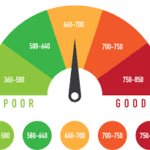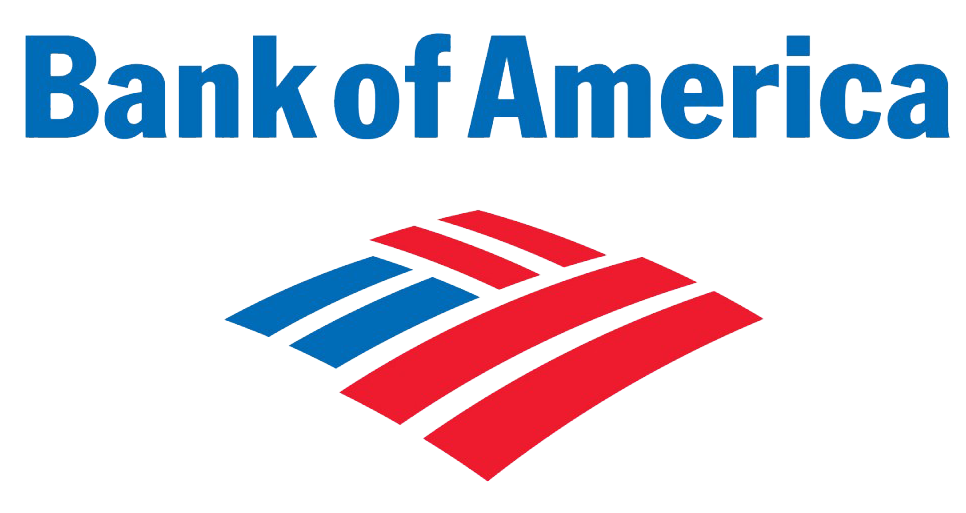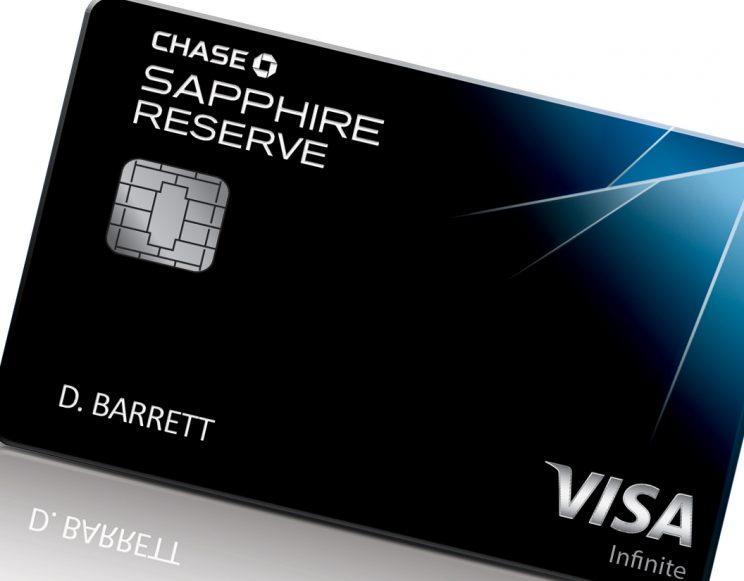Last Updated on January 13, 2025 by admin
A credit card is a financial tool that allows users to borrow money up to a predetermined limit for purchases, bill payments, or cash advances. Unlike debit cards, which directly withdraw funds from a bank account, credit cards provide a line of credit that can be repaid later. This borrowed amount can be paid back in full within a grace period to avoid interest charges, or in monthly installments with added interest.
Credit cards offer several key features that distinguish them from other payment methods. They typically come with a credit limit based on the user’s creditworthiness. Transactions require authorization from the credit card network, and a statement is issued at the end of each billing cycle detailing all transactions and the payment due. Many credit cards also offer rewards programs, allowing users to earn points, miles, or cash back on their purchases
| Feature | Credit Card | Debit Card |
|---|---|---|
| Fund Source | Borrowed from issuer | Directly from bank account |
| Spending Limit | Preset credit limit | Available account balance |
| Interest Charges | Applies on unpaid balances | No interest charges |
| Credit Building | Affects credit score | No impact on credit score |
| Rewards | Often includes rewards programs | Limited or no rewards |
| Consumer Protection | Strong fraud protection | Limited protection |
One of the most significant aspects of credit cards is their impact on personal finances and credit history. When used responsibly, credit cards can help build a positive credit history, which is crucial for future loan approvals and favorable interest rates. However, they also come with the risk of accumulating debt if not managed properly. As of 2025, credit card interest rates are forecasted to average around 19.80%, a slight decrease from previous years
Credit cards often come with various fees and charges that users should be aware of. Common fees include cash advance fees, typically a flat fee of $10 or 5% of the transaction, whichever is higher. The average APR for cash advances is higher than regular purchase APRs, often around 24.80%. Additionally, credit cards may have annual fees, balance transfer fees, and foreign transaction fees. It’s crucial for users to understand these costs to make informed decisions about their credit card usage
What are credit cards?
Credit cards are financial tools issued by banks or financial institutions that allow cardholders to borrow funds for purchases, up to a certain limit, based on their credit agreement. Here’s a closer look at key aspects of credit cards:
How They Work:
- Borrowing Limit: Each card has a credit limit, which is the maximum amount the cardholder can borrow.
- Monthly Billing Cycle: Users receive a statement each month detailing their transactions and the amount due.
- Minimum Payment: Cardholders are required to pay at least a minimum amount by the due date to avoid late fees.
- Interest Charges: If the full balance is not paid by the due date, interest is charged on the remaining balance at a specified annual percentage rate (APR).
Types of Credit Cards:
- Standard Credit Cards: Basic cards with minimal fees and features.
- Rewards Credit Cards: Offer benefits like cashback, points, and travel rewards.
- Secured Credit Cards: Require a deposit and are good for building or rebuilding credit.
- Business Credit Cards: Designed for business expenses, offering rewards and benefits tailored to business needs.
Uses:
- Easy to carry and use for purchases both in-person and online.
- build credit Using a credit card responsibly helps build a positive credit history.
- Offers protection on purchases like extended warranties and fraud protection.
How Credit Cards Work:
Credit cards work by allowing you to borrow money from a bank or financial institution to make purchases or withdraw cash up to a certain limit. Here’s a detailed look at how they operate:
Application and Approval:
- You apply for a credit card by providing your financial information and agreeing to the issuer’s terms.
- The issuer evaluates your creditworthiness based on your credit score, income, and debt. If approved, you receive a credit limit.
Using Your Card:
- You can use your credit card to pay for goods and services, either in person, online, or over the phone. Each purchase reduces your available credit.
- You can withdraw cash using your card, but this often comes with higher fees and interest rates.
Billing and Payment:
- You receive a statement each month summarizing your transactions, fees, interest charges, and the total amount due.
- You can pay your balance in full or make a minimum payment by the due date. Paying in full avoids interest charges, whereas carrying a balance results in interest accruing on your remaining balance.
Interest Rates and Fees:
- Interest Rates (APR): This is the annual rate charged on borrowed amounts. If you don’t pay off your balance in full each month, interest is applied to the remaining balance.
- Fees: These can include annual fees, late payment fees, and foreign transaction fees.
Rewards and Benefits:
- Many credit cards offer rewards such as cashback, points, or miles for purchases. These can be redeemed for travel, statement credits, or other perks.
- Credit cards often come with extra benefits like purchase protection, travel insurance, extended warranties, and fraud protection.
Managing Your Credit:
- This is the ratio of your outstanding credit card balances to your credit limits. A lower ratio is better for your credit score.
- Responsible use of credit cards by making timely payments and keeping balances low positively affects your credit score.
Credit cards provide convenience and financial flexibility, but it’s important to use them responsibly to avoid debt and maintain a good credit score
Types of Credit Cards:
Credit cards come in various types, each tailored to meet different financial needs and spending habits. Here are some of the main types:
Standard Credit Cards:
- Basic Credit Cards: Also known as classic or standard cards, they offer a straightforward way to make purchases and build credit, usually with no annual fees but limited rewards and benefits.
Rewards Credit Cards:
- Cash Back Credit Cards: These cards offer cash rewards on your purchases, either as a percentage of spending or fixed amounts for specific categories (e.g., groceries, gas).
- Points-Based Credit Cards: Earn points for every purchase, which can be redeemed for travel, gift cards, merchandise, or even statement credits.
- Travel Rewards Credit Cards: Ideal for frequent travelers, these cards offer points or miles for travel-related purchases and often come with perks like airline lounge access, free checked bags, and travel insurance.
Secured Credit Cards:
- Secured Credit Cards: Require a security deposit, which typically serves as your credit limit. These are great for building or rebuilding credit, offered even with poor or no credit history.
Business Credit Cards:
- Small Business Credit Cards: Provide rewards and benefits tailored to business expenses, such as office supplies, travel, and advertising. They also often offer expense management tools.
Student Credit Cards:
- Student Credit Cards: Designed for college students, these cards often have lower credit limits, some rewards, and features to help young adults build credit responsibly.
Specialty Credit Cards:
- Balance Transfer Credit Cards: Offer low or 0% introductory APR on balance transfers from other cards, helping you save on interest payments.
- Low-Interest Credit Cards: Provide a lower ongoing APR, beneficial for those who carry a balance from month to month.
- No Annual Fee Credit Cards: Cards that do not charge an annual fee, suitable for those who want to avoid extra costs.
- Store Credit Cards: Issued by specific retailers, they offer rewards and discounts on purchases made at the retailer’s stores.
Different cards are suited for different financial goals and lifestyles. Which type interests you the most, or do you need help with choosing the right one?
Risks of Using Credit Cards:
Using credit cards comes with certain risks that you should be aware of to manage your finances wisely:
High-Interest Rates:
- Interest Charges: If you don’t pay off your balance in full each month, interest charges can quickly accumulate, leading to significant debt.
- Variable APR: The interest rate on many credit cards can change, making it harder to predict monthly payments.
Potential for Debt:
- Over-Spending: Credit cards can encourage spending beyond your means, leading to large balances and potential debt.
- Minimum Payments: Paying only the minimum amount due each month prolongs debt repayment and increases interest costs.
Impact on Credit Score:
- Missed Payments: Late or missed payments can have a negative impact on your credit score.
- High Credit Utilization: Using too much of your available credit can lower your credit score.
Fees and Penalties:
- Annual Fees: Some cards charge annual fees which can add to overall costs.
- Late Payment Fees: Failing to make payments on time can result in costly late fees and increased interest rates.
- Foreign Transaction Fees: Some cards charge fees for transactions made in foreign currencies.
Fraud and Identity Theft:
- Unauthorized Charges: While there is usually fraud protection, dealing with fraudulent charges can be a hassle.
- Phishing Scams: Credit card users can be targeted by scammers attempting to steal personal information.
Hidden Costs:
- Cash Advances: Using your credit card to withdraw cash can come with high fees and interest rates from the date of the advance.
- Balance Transfer Fees: Transferring balances from one card to another might incur fees, which can offset any potential interest savings.
Complicated Rewards:
- Rewards Expiration: Some rewards points or miles have expiration dates or other conditions that make them hard to redeem.
- Complex Terms: Understanding the fine print and terms of rewards programs can be challenging.
By being mindful of these risks and using credit cards responsibly, you can avoid pitfalls while benefiting from their convenience and rewards.
How to Choose the Right Credit Card
Choosing the right credit card requires understanding your financial goals and spending habits. Here are some key factors to consider when selecting a credit card:
Assess Your Needs:
- Credit Building: If you’re looking to build or improve your credit, a secured card or a card designed for credit building might be suitable.
- Rewards: Decide whether you prefer cashback, travel rewards, or points that can be redeemed for various options.
- Low Interest: If you tend to carry a balance, look for a card with a low interest rate or a 0% introductory APR offer.
Understand Fees and Terms:
- Annual Fee: Determine if the benefits of the card outweigh any annual fee. Sometimes, no-fee cards are just as beneficial as those with higher fees.
- Foreign Transaction Fees: Important for travelers, as some cards waive these fees.
- Other Fees: Be aware of other potential fees, such as late payment or balance transfer fees.
Match Your Spending Habits:
- Category Rewards: Some cards offer higher rewards for specific categories like dining, groceries, or travel. Choose a card that maximizes rewards in your frequent spending categories.
- Flat-Rate Rewards: If your spending is varied, a card offering a flat rate on all purchases might be the best fit.
Check for Introductory Offers:
- Sign-Up Bonuses: Many cards offer a significant bonus if you meet a spending requirement within the first few months.
- Introductory APR: Look for cards that offer 0% APR on purchases or balance transfers for a limited time.
Consider Additional Benefits:
- Purchase Protection: Cards that offer extended warranties, price protection, and purchase insurance can add extra value.
- Travel Perks: Look for benefits like travel insurance, rental car coverage, or access to airport lounges.
- Customer Service and Support: Consider the quality of customer service and support offered by the card issuer.
Compare Cards:
- Use comparison tools or resources to evaluate different cards side-by-side based on your criteria.
- Read Reviews and Ratings: Check out user reviews and expert ratings to get a sense of how others rate the card’s benefits and customer service.
Assess Your Credit Score:
- Eligibility: Your credit score will impact which cards you can get approved for. Check your score and apply for cards within your credit range.
By assessing these factors, you’ll be better equipped to choose a credit card that aligns with your financial goals and habits.
How to Build Credit History with Credit Cards
Building a strong credit history with credit cards involves using them responsibly. Here’s a guide to help you get started:
Get a Credit Card:
- Secured Credit Card: If you have no or low credit, consider starting with a secured credit card, which requires a deposit that serves as your credit limit.
- Student Credit Card: If you’re a student, look for student credit cards designed for young adults new to credit.
Use Your Card Regularly:
- Small Purchases: Use your card for small, manageable purchases to ensure you can pay off the balance each month.
- Recurring Payments: Use your card for monthly subscriptions or bills to build a consistent payment history.
Pay On Time:
- Automatic Payments: Set up automatic payments to ensure you never miss a due date.
- Payment Reminders: Use reminders or calendar alerts to track due dates and avoid late payments.
Pay in Full:
- Avoid Carrying a Balance: Pay your full balance each month to avoid interest charges and show responsible credit use.
- Regular Payments: If paying in full is difficult, try to pay more than the minimum amount due to reduce your debt faster.
Monitor Your Spending:
- Track Transactions: Keep an eye on your spending to stay within budget and avoid overspending.
- Use Mobile Apps: Use your bank’s mobile app to monitor your credit card usage and stay on top of your finances.
Keep Balances Low:
- Credit Utilization Ratio: Aim to use less than 30% of your available credit limit to maintain a healthy credit utilization ratio.
- Multiple Payments: Make multiple payments throughout the month to keep your balance low.
Avoid Unnecessary Applications:
- Limit New Credit Applications: Too many credit inquiries in a short period can negatively impact your credit score.
- Choose Wisely: Apply for credit cards that match your credit profile and financial needs.
Use Credit Responsibly:
- Avoid Cash Advances: These can come with high fees and interest rates.
- Understand Your Terms: Be aware of your card’s interest rates, fees, and rewards programs to use it effectively.
Check Your Credit Report:
- Regular Reviews: Regularly check your credit report to ensure it’s accurate and up-to-date.
- Dispute Errors: If you find any errors, dispute them with the credit bureau to keep your credit history clean.
Utilize Rewards Wisely:
- Maximize Benefits: Use your card to earn rewards like cashback or points for purchases you’d make anyway.
- Avoid Overspending: Don’t overspend just to earn rewards.
Do credit cards have fixed or variable annual percentage rates (APRs)?
Most credit cards have variable annual percentage rates (APRs). This means the interest rate can change over time, usually in response to fluctuations in a benchmark interest rate, such as the prime rate set by the Federal Reserve.
Here’s how it works:
- Variable APR: The card issuer sets your APR based on the prime rate plus a margin. The margin is a fixed percentage added to the prime rate and varies depending on the card and your creditworthiness.
- Prime Rate Changes: When the prime rate increases or decreases, your APR will typically adjust accordingly. This can affect the amount of interest you accrue on your balance.
While variable APRs are the norm, there are some credit cards that offer fixed APRs. However, these are less common and may be found more often at smaller financial institutions like credit unions or local banks.
Here’s a quick comparison:
| Feature | Variable APR | Fixed APR |
|---|---|---|
| Interest Rate | Fluctuates with the prime rate. | Remains the same unless the card issuer explicitly changes it. |
| Predictability | Less predictable, as rates can change based on economic factors. | More predictable, allowing for better budgeting. |
| Availability | More common, offered by most major credit card issuers. | Less common, typically offered by smaller financial institutions. |
Using a credit card responsibly is crucial to maintaining good financial health. Here are some key tips:
Pay Your Bill on Time:
- Set Reminders: Use calendar alerts or your bank’s app to remind you of upcoming due dates.
- Enable Autopay: Set up automatic payments to ensure your bill is paid on time every month.
Pay in Full:
- Avoid Interest Charges: Whenever possible, pay your full balance each month to avoid interest charges.
- Budgeting: Only charge what you can afford to pay off by the statement due date.
Monitor Your Spending:
- Track Purchases: Regularly check your credit card transactions to stay within your budget and spot any unauthorized charges.
- Use Apps: Many apps help categorize and track spending, making it easier to manage your money.
Keep Balances Low:
- Credit Utilization: Aim to use less than 30% of your credit limit to help improve your credit score.
- Multiple Payments: If possible, make payments throughout the month to keep your balance low.
Understand Your Terms:
- Read the Fine Print: Be aware of interest rates, fees, and rewards programs. Knowing the terms helps you use your card in ways that maximize benefits and minimize costs.
- Stay Updated: Keep an eye on changes in terms or interest rates from your card issuer.
Manage Your Credit Limit:
- Avoid Maxing Out: Stay well below your credit limit to preserve available credit for emergencies and maintain a good credit score.
- Request Limit Increases: Responsibly ask for a credit limit increase as your financial situation improves—but don’t use it as an excuse to spend more.
Protect Your Information:
- Secure Your Card: Keep your card and account information safe from theft and fraud.
- Monitor Statements: Report any suspicious charges immediately to your card issuer.
Be Selective with Applications:
- Limit New Accounts: Only apply for new credit when necessary, as too many new accounts or inquiries can negatively impact your credit score.
- Choose the Right Card: Select cards that align with your spending habits and financial goals.
Utilize Rewards Wisely:
- Maximize Cashback/Points: Use your card for purchases that yield the most rewards, but don’t overspend just to earn points.
- Stay Informed of Offers: Keep track of reward categories and bonus opportunities offered by your card issuer.
Using these strategies can help you harness the benefits of a credit card while avoiding common pitfalls.




















